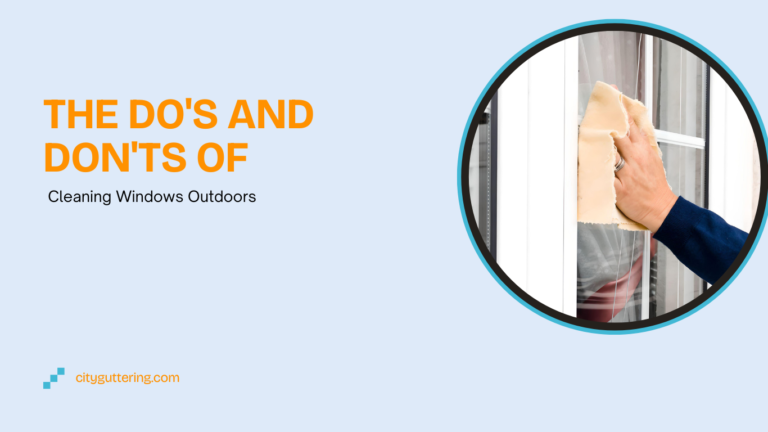Solar panels have become an essential part of energy-efficient homes and businesses. They provide a sustainable way to generate electricity, helping to reduce reliance on traditional energy sources. However, like any outdoor installation, solar panels are exposed to dirt, dust, bird droppings, and other environmental factors that can reduce their efficiency.
A common question among homeowners and businesses is: How often should solar panels be cleaned? The answer depends on various factors, including location, weather conditions, and the surrounding environment.
In this article, we’ll explore the importance of cleaning solar panels, how often they need maintenance, and the best ways to keep them in optimal condition.
Why Cleaning Solar Panels is Important
Solar panels work by absorbing sunlight and converting it into electricity. When dirt and debris accumulate on the surface, they create a barrier that prevents sunlight from reaching the photovoltaic cells. This obstruction can significantly reduce energy production over time.
Several factors contribute to the need for regular cleaning:
- Dust and Pollution – Areas with high traffic, industrial activity, or construction work experience higher dust accumulation, which can settle on solar panels and reduce their efficiency.
- Bird Droppings – Unlike dust, bird droppings are more stubborn and do not wash away easily with rain. They can create hard-to-remove stains that further block sunlight.
- Pollen and Leaves – In certain seasons, pollen can stick to the panels, creating a film that diminishes energy absorption. Fallen leaves can also accumulate and cast shadows over the panels, reducing performance.
- Water Stains – While rain helps rinse off some dirt, it can also leave behind mineral deposits that create streaks and marks, especially in hard water areas.
By keeping solar panels clean, homeowners and businesses can maintain their system’s efficiency and extend its lifespan.

Factors That Affect How Often Solar Panels Need Cleaning
There is no universal cleaning schedule for solar panels since various elements influence how quickly they become dirty. Here are some key factors to consider:
1. Location and Environment
- Urban vs. Rural Areas – City-based solar panels are more exposed to air pollution and dust from roads and industries. In contrast, rural areas may have more pollen, dirt from farmland, and organic debris.
- Coastal Regions – Homes near the coast experience salt buildup, which can leave a sticky residue on panels, requiring more frequent cleaning.
2. Weather Conditions
- Rainfall – While rain can help clean solar panels, it does not always remove stubborn grime. Additionally, rain mixed with dust can create a thin layer of dirt once it dries.
- Dry and Dusty Climates – If you live in an area with long dry seasons, panels can accumulate a thick layer of dust over time.
- Snow and Ice – In colder regions, snow can cover solar panels, blocking sunlight. Once it melts, it may leave behind dirt that needs to be washed off.
3. Angle and Positioning
- Flat vs. Sloped Panels – Panels installed at an angle tend to shed dirt and debris more easily, especially when it rains. Flat panels, on the other hand, accumulate more dust and water stains.
- Shaded vs. Open Areas – Panels under trees or near buildings are more likely to gather leaves, pollen, and bird droppings compared to those in open areas.

Recommended Cleaning Frequency
Based on these factors, general cleaning recommendations are:
- Every 6-12 months – Most residential solar panels require cleaning at least once or twice a year, depending on environmental conditions.
- Every 3-6 months – For homes in high-dust areas, coastal regions, or places with frequent bird activity, a more frequent cleaning schedule is ideal.
- Annual professional maintenance – Even if you clean your panels yourself, an annual professional check-up ensures there are no deeper issues affecting performance.
Regular maintenance helps homeowners prevent minor dirt buildup from becoming a major efficiency problem.
How to Clean Solar Panels Safely
While cleaning solar panels isn’t overly complicated, it’s essential to do it correctly to avoid damage. Using improper methods can scratch the surface, reduce efficiency, and even void warranties.
DIY Cleaning Tips
If you prefer to clean your panels yourself, follow these steps:
- Use Soft Materials – A soft brush, sponge, or microfiber cloth is ideal to avoid scratching the glass surface.
- Mild Soapy Water – Mix mild detergent with water to gently remove grime. Avoid harsh chemicals that could degrade the panel’s coating.
- Rinse with Clean Water – Use a hose to wash away soap and dirt. Avoid using high-pressure washers, as the force can damage the panels.
- Clean During Cooler Hours – Early morning or late evening is the best time to clean. Cleaning under direct sunlight can cause water to evaporate quickly, leaving streaks.
- Avoid Walking on the Panels – If panels are hard to reach, use an extension pole instead of stepping on them, as this can cause cracks.

Professional Cleaning Services
For those who prefer a hassle-free approach, professional solar panel cleaning services provide:
- Thorough cleaning without risk of damage.
- Use of specialized equipment for difficult-to-reach panels.
- Inspection for signs of wear, cracks, or other issues.
Signs Your Solar Panels Need Cleaning
If you’re unsure whether your panels need a wash, look for these indicators:
- Drop in Energy Output – If your solar monitoring system shows lower energy production, dirt buildup may be to blame.
- Visible Dirt or Streaks – A cloudy or dusty appearance suggests panels are not receiving maximum sunlight.
- Bird Droppings or Leaves – Sticky residues and leaf piles can create shadowing that blocks solar absorption.
- Rainwater Stains – Water spots or mineral deposits left after rainfall can gradually reduce efficiency.
Monitoring energy output regularly helps determine whether cleaning is necessary.
The Connection Between Solar Panel Efficiency and Gutter Maintenance
Many homeowners overlook the role gutters play in solar panel maintenance. While gutters and solar panels serve different functions, they are both part of the overall roof system and influence each other in several ways:
- Clogged Gutters Can Cause Water Buildup – When gutters overflow, standing water can seep under the edges of solar panels, leading to mold and debris accumulation.
- Birds and Rodents Nest in Dirty Gutters – Blocked gutters attract pests that leave droppings, increasing the likelihood of bird waste on solar panels.
- Excess Leaves and Debris Affect Airflow – Leaf buildup in gutters can trap moisture, leading to moss growth that spreads to nearby panels.
Regular gutter cleaning helps prevent these issues, ensuring a clean and efficient solar panel system.

Conclusion
Keeping solar panels clean is essential for maintaining their efficiency and longevity. The frequency of cleaning depends on location, weather conditions, and surrounding environmental factors. While occasional rain may rinse off loose dirt, professional cleaning or DIY maintenance is necessary to remove stubborn grime, bird droppings, and mineral deposits.
Homeowners should also remember that maintaining clean gutters contributes to better solar panel performance by preventing water buildup and organic debris from affecting energy absorption.
If you’re looking to keep your roof in top condition, City Guttering London offers expert gutter cleaning services to help protect both your home and your solar panel system. Get in touch today for a free quote within 45 minutes!





